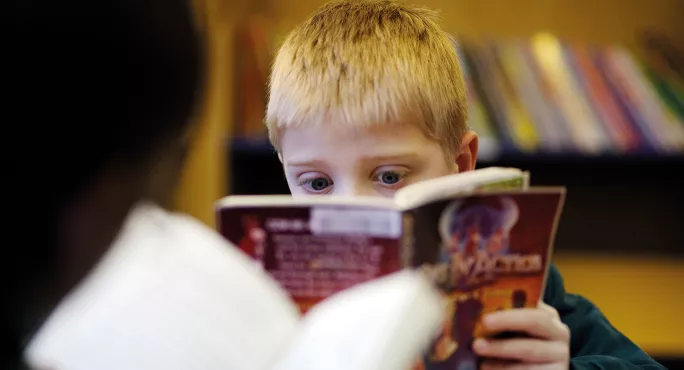Secondary schools should encourage their pupils to tackle more difficult books, according to the author of a new study, which reveals that pupils chose more complex books to read during lockdown.
The report also suggests that schools should focus on giving pupils more time and space to read.
Related: 6 lessons from lockdown around reading for pleasure
Literacy: ‘Don’t overdo the doom’ on lockdown reading decline
News: What has happened to handwriting in lockdown?
Young people’s reading skills improved during lockdown, as many children picked up longer books of greater difficulty, according to the study.
But older pupils in secondary school were still reading books of the same difficulty as upper primary pupils during the pandemic year, the report suggests.
The latest edition of the annual What Kids Are Reading report analysed the reading habits of more than 1.1 million young people across the UK and Ireland.
The report, produced by Professor Keith Topping of the University of Dundee, and assessment provider Renaissance UK, found that the number of books read overall dropped by 17 per cent compared with last year.
But reading levels increased during school closures as children were inclined to pick up more challenging books for their age, researchers suggest.
Primary school children and those up to Year 7, in particular, improved on their reading levels by reading harder texts with greater comprehension.
The report says: “There was a marked difference in Year 7 - the difficulty of favoured books was at chronological age and, in ensuing years, the difficulty of books declined sharply.
“This is the same picture as last year. It seems that transfer to secondary school has a striking effect even on highly motivated readers.”
One Of Us Is Lying by Karen M McManus and Harry Potter And The Prisoner Of Azkaban by JK Rowling were favourite books read during the first lockdown by secondary and primary pupils respectively.
From 2020 to 2021, there was little change in children’s favourite authors overall: Jeff Kinney, David Walliams and Roald Dahl remained popular while Rowling reappeared in this year’s list.
Professor Topping said: “During the lockdown overall, pupils were tending to read longer books of greater difficulty and with greater comprehension.
“Having more time to read gave children the chance to immerse themselves in literature and schools should encourage more reading time now that they are open again.
“It is great to see that primary-age children are reading more difficult books and this should be reflected at secondary school age, where book difficulty this year plateaued.
“Secondary schools need to encourage their pupils to attack more difficult books.”
John Moore, director of Renaissance UK, said: “Knowing that reading really helped younger children to feel better throughout the pandemic is very encouraging.
“It’s promising to see that, when pupils had a choice of books to hand, many chose a more challenging book and one that perhaps allows for more escapism.”
He added: “This report highlights how important it is that everyone has access to books and what schools need to do to re-engage children with reading for enjoyment while giving them space and time to read more.”





